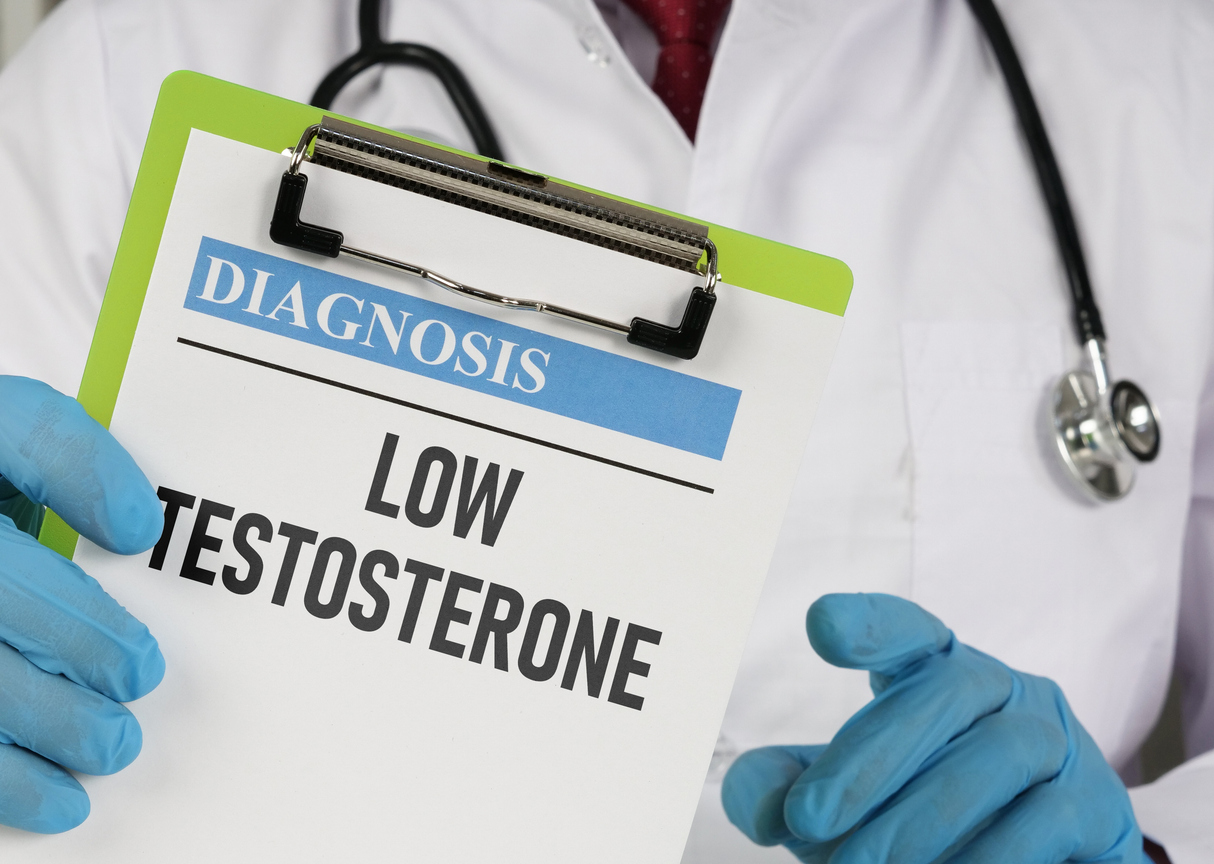Recognizing Signs of Low Testosterone: Identifying Potential Candidates for TRT
Are you grappling with persistent fatigue, diminished libido, or mood swings that seem unexplainable? These could be glaring indicators of low testosterone levels, a condition affecting countless men globally. Testosterone, a pivotal hormone, regulates an array of bodily functions, encompassing muscle mass, bone density, and sexual performance. When testosterone levels plummet below the norm, it can usher in a spectrum of symptoms that can profoundly disrupt daily life.
Symptoms of Low Testosterone:
Fatigue and Lethargy: Perpetual tiredness and a lack of vigor, even after ample rest, are classic hallmarks of low testosterone levels. Individuals may find it arduous to summon the energy necessary for routine activities or exercise.
Decreased Libido: A waning sexual desire or interest can serve as a red flag for low testosterone. Men might perceive a decline in their enthusiasm for sexual pursuits or encounter challenges in achieving and sustaining erections.
Erectile Dysfunction: Struggling to attain or maintain an erection during sexual activity is a prevalent symptom of low testosterone. This can significantly dent confidence and impede intimate relationships.
Loss of Muscle Mass and Strength: Testosterone’s pivotal role in preserving muscle mass and strength is evident. If muscle mass noticeably declines despite regular exercise, it could indicate low testosterone levels.
Increase in Body Fat: Low testosterone levels may culminate in an uptick in body fat, particularly around the midsection. Even with diligent adherence to a balanced diet and exercise regimen, shedding excess weight may prove challenging.
Mood Swings: Testosterone exerts influence over mood regulation, and diminished levels can precipitate irritability, mood swings, and bouts of depression. Individuals may find themselves more prone to agitation or lacking zest for activities that once brought joy.
Decreased Bone Density: Testosterone aids in upholding bone density, and a decline in levels can elevate the risk of osteoporosis and fractures. Individuals experiencing unexplained bone pain or fractures should consider the possibility of low testosterone.
Who Would Benefit from TRT?
While anyone experiencing these symptoms should consider consulting a healthcare professional, certain individuals might be ideal candidates for testosterone replacement therapy (TRT). These include:
- Men with Clinically Low Testosterone Levels: Individuals whose testosterone levels fall below the clinically accepted range may benefit from TRT to restore hormonal balance.
- Men Experiencing Persistent Symptoms: Those who continue to experience symptoms despite lifestyle modifications or other interventions may find relief through TRT.
- Men Seeking to Improve Quality of Life: Individuals looking to enhance vitality, libido, and overall well-being may explore TRT as a viable option.
Age and Testosterone Decline:
Testosterone levels typically begin to decline around the age of 30, with a gradual decrease of about 1% per year. However, the decline can accelerate with age, particularly after reaching the age of 40 or 50. This rapid descent in testosterone levels can exacerbate symptoms of low testosterone and necessitate intervention to maintain optimal health and vitality.
If you’re experiencing one or more of these symptoms, it’s essential to consult with a healthcare professional for proper evaluation and diagnosis. Low testosterone can significantly impact quality of life, but effective treatments are available, including testosterone replacement therapy (TRT).
How TRT Reverses Signs and Symptoms of Low Testosterone:
Testosterone replacement therapy (TRT) involves replacing testosterone to restore levels to a healthy range. This can be done through various methods, including injections, patches, gels, or implants. TRT can help alleviate symptoms and improve overall well-being for men with low testosterone levels. Here’s how TRT can help:
- Increased Energy and Vitality: One of the primary benefits of TRT is the restoration of energy levels and vitality. Individuals undergoing TRT often report feeling more energetic and motivated to engage in daily activities.
- Improved Sexual Function: TRT can enhance libido, improve erectile function, and increase overall sexual satisfaction. Many individuals experience a resurgence in sexual desire and performance following TRT.
- Muscle Mass and Strength: Testosterone plays a crucial role in maintaining muscle mass and strength. TRT can help preserve existing muscle mass and facilitate muscle growth with regular exercise.
- Reduction in Body Fat: Low testosterone levels are associated with increased body fat, particularly around the abdomen. TRT can help reduce body fat and promote a leaner physique when combined with proper diet and exercise.
- Enhanced Mood and Well-Being: Testosterone influences mood regulation, and low levels can contribute to mood swings, irritability, and depression. TRT can stabilize mood and improve overall well-being, leading to a greater sense of happiness and contentment.
- Bone Health: Testosterone is vital for maintaining bone density and strength. TRT can help prevent bone loss and reduce the risk of osteoporosis and fractures associated with low testosterone levels.
In conclusion, if you’re experiencing symptoms of low testosterone, don’t suffer in silence.
Recognizing the signs of low testosterone is crucial for prompt diagnosis and treatment. If you identify with any of these symptoms, don’t hesitate to reach out to Apex Hormone Health for comprehensive hormone testing and personalized treatment options. Our team of experts is committed to helping you regain vitality and reclaim your quality of life. Take the first step towards renewed well-being by scheduling a consultation.
We are dedicated to helping you restore vitality and improve your quality of life. Take the first step towards feeling like yourself again by contacting us today.






